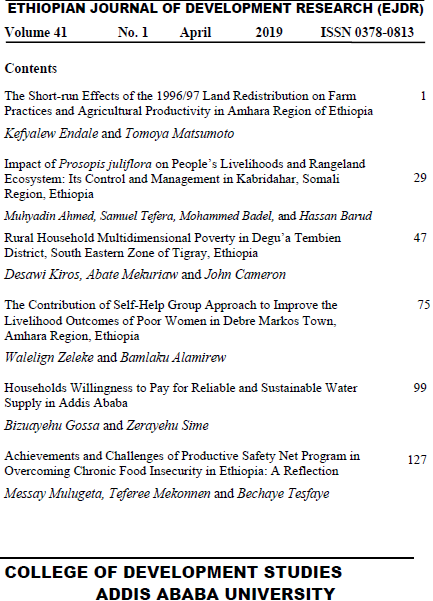Impact of Prosopis juliflora on People’s Livelihoods and Rangeland Ecosystem: Its Control and Management in Kabridahar, Somali Region, Ethiopia
Keywords:
Livelihood, management and control, Prosopis juliflora, rangeland, Somali region, EthiopiaAbstract
Prosopis juliflora is a multipurpose tree of different functions. However, most
of its benefits are not well known in non-native places, particularly in
pastoralist dominated dry lands of sub-Saharan Africa. In Ethiopia, this
invasive alien tree has shown a rapid expansion into rangelands affecting local
livelihoods leading to conflicts between pastoralists. However, little is done to
either control or manage it properly. This paper examined the impact of
Prosopis juliflora on pastoralist and agro-pastoralists’ livelihoods and
rangeland ecosystem and the subsequent control and management options in
Kabridahar woreda of the Somali regional state, Ethiopia. In order to
investigate the spatial and temporal rangeland dynamics, the researchers
selected land SAT ETM+ for 2007 and 2017 based on the bench mark given
by the local communities who agreed that visible land-use/land-cover changes
occurred, particularly, through the expansion of Prosopis juliflora. Surveys,
focus group discussions and key informant interviews were held to collect
primary data. Prosopis invasion in Kabridahar affected people’s livelihood
and significantly reduced size of grazing land. Despite the extent and
magnitude of the tree’s expansion, the application of management and control
options was little.

